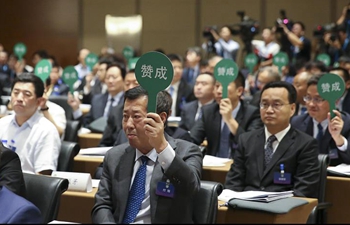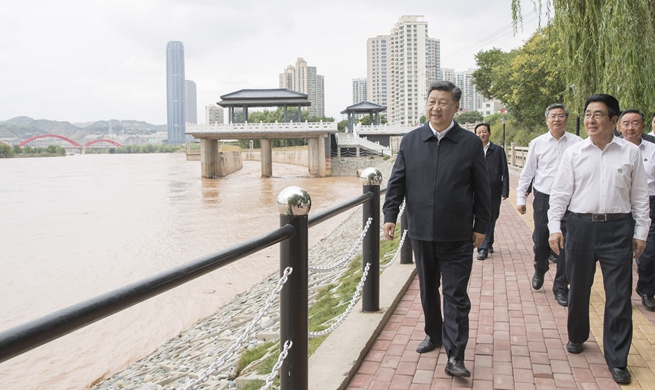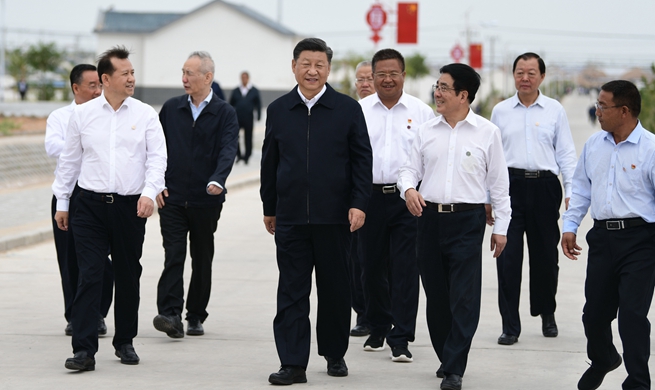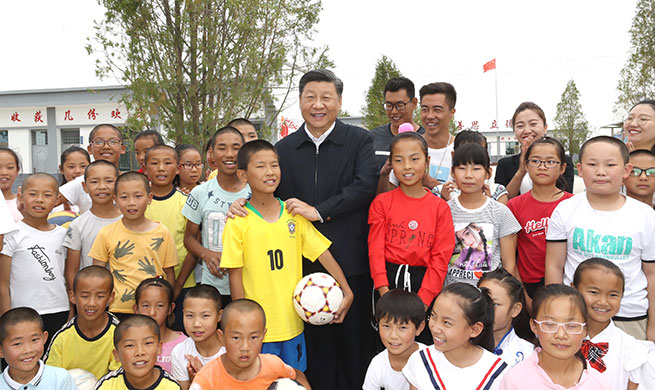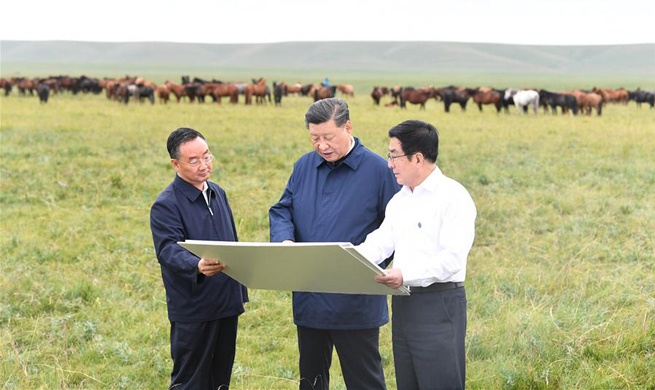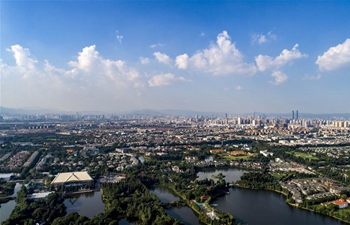TOKYO, Aug. 22 (Xinhua) -- The Japanese government on Thursday lodged protest with South Korea over its decision to pull out of an bilateral intelligence-sharing pact, as bilateral relations sour to the lowest point in years.
South Korea announced the decision to scrap the General Security of Military Information Agreement, or GSOMIA, with Japan on exchanging classified military information on Thursday.
According to the South Korean government, Japan's actions on trade, namely its tightening of export controls on some materials crucial to the South Korean technology industry, have changed the whole security situation, making it inappropriate to share sensitive information such as military intelligence.
The GSOMIA, signed in November 2016, is aimed at streamlining intelligence sharing between the allies of the U.S., which has enabled Tokyo and Seoul to share information. It had been automatically renewed each year in August. If either party wants to scrap the pact, the party will be required to notify the other of its intention 90 days in advance. This year's notification deadline falls on Aug. 24.
Japan had urged South Korea to extend the agreement. Chief Cabinet Secretary Yoshihide Suga told reporters earlier on Thursday that though relations with South Korea are now extremely strained, the Japanese government believes it is important for the two countries to work together wherever they should.
Meanwhile, Japanese Defense Minister Takeshi Iwaya said the agreement is a useful framework for Japan and South Korea to analyze the security situation and take responses.
Japanese media had widely expected South Korea to extend the pact. After South Korea announced its decision, a senior official with Japan's Defense Ministry told public broadcaster NHK that South Korea's decision is "unbelievable", and the government will consider its response.
A Japanese government source said South Korea's decision to pull out of the intelligence-sharing pact is "extremely regrettable". According to the source, it is unlikely that there will be an immediate impact on the cooperation between Japan and the United States. However, communication between the defense authorities of Japan and South Korea will become even more difficult in the future.
A senior officer of Japan's Self-Defense Forces expressed similar view. SDF have a solid information-sharing system with the U.S. military, the officer told NHK, adding that he does not believe South Korea's withdrawal from the pact will have an adverse effect on the operations of SDF units. However, he expressed concern about a possible impact on exchanges and communication between SDF members and the South Korean military.
Meanwhile, the U.S. military stationed in Japan declined to comment, saying that it is a matter between South Korea and Japan.
The termination of the GSOMIA is the latest product of deepening enmity between South Korea and Japan over wartime history and trade issues.
Japan removed South Korea earlier this month from its whitelist of trusted trading partners, after tightening regulations last month on its export to South Korea of three materials vital to produce memory chips and display panels.
South Korea has since taken Japan off of its own "white list" of trusted trade partners and announced tighter restrictions for importing coal ash and some waste recycling materials from Tokyo.
